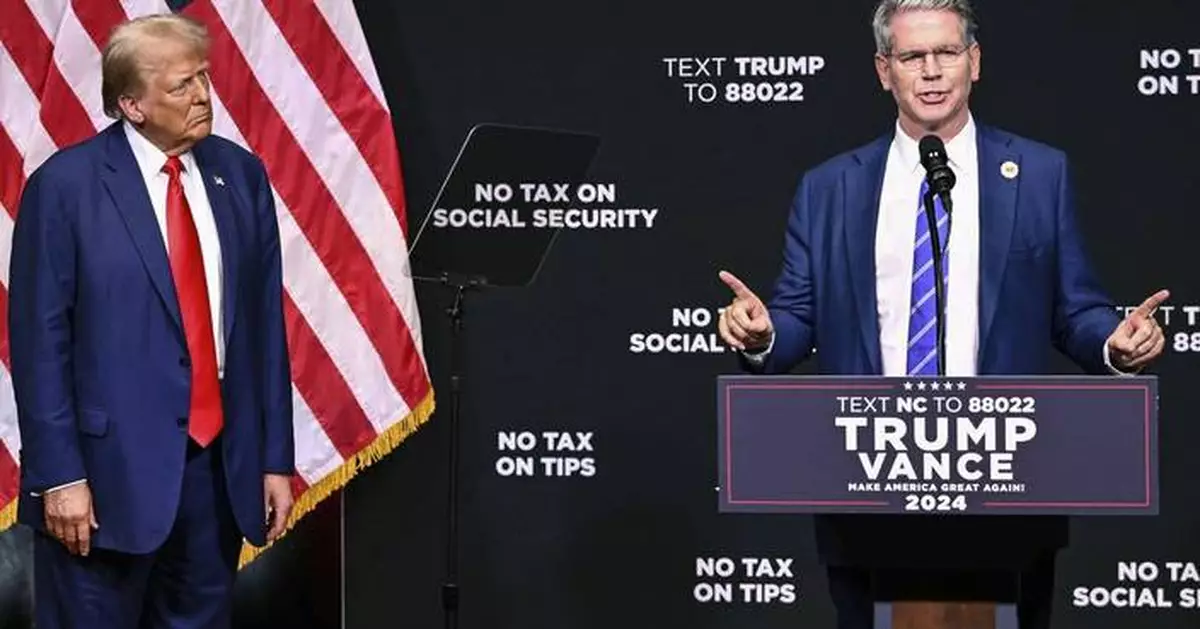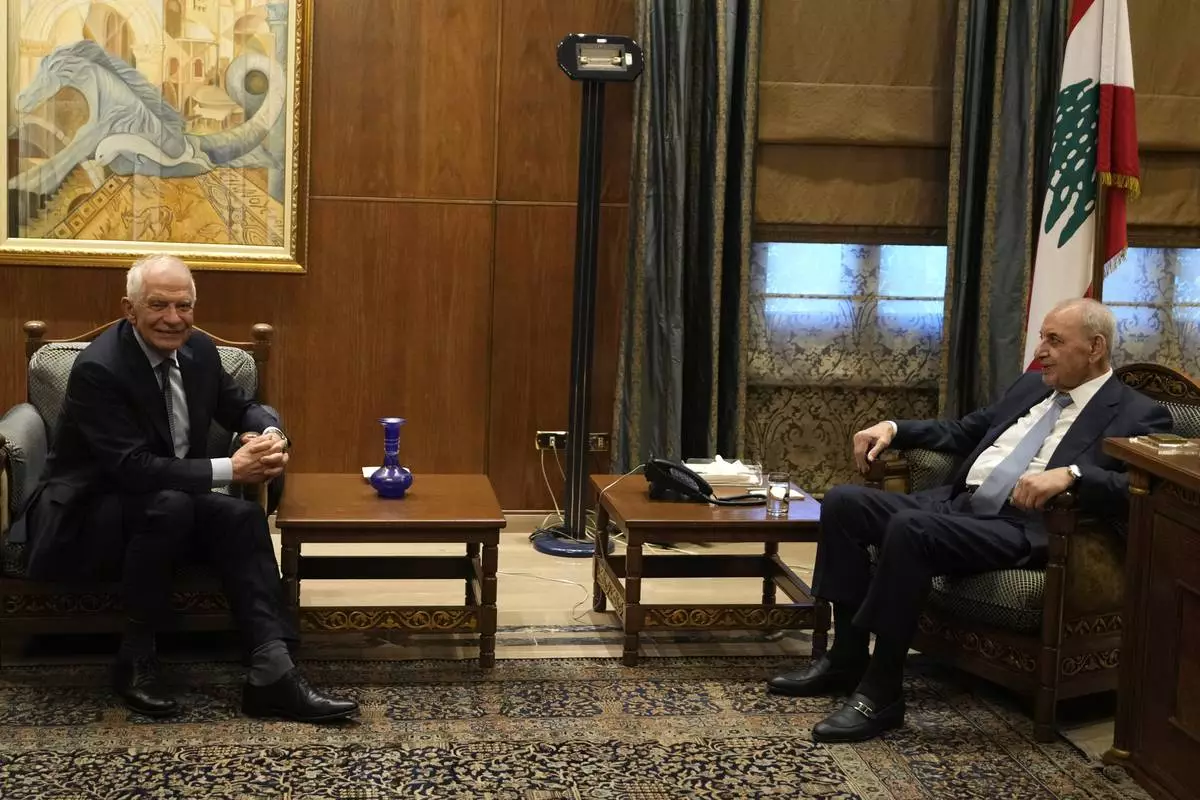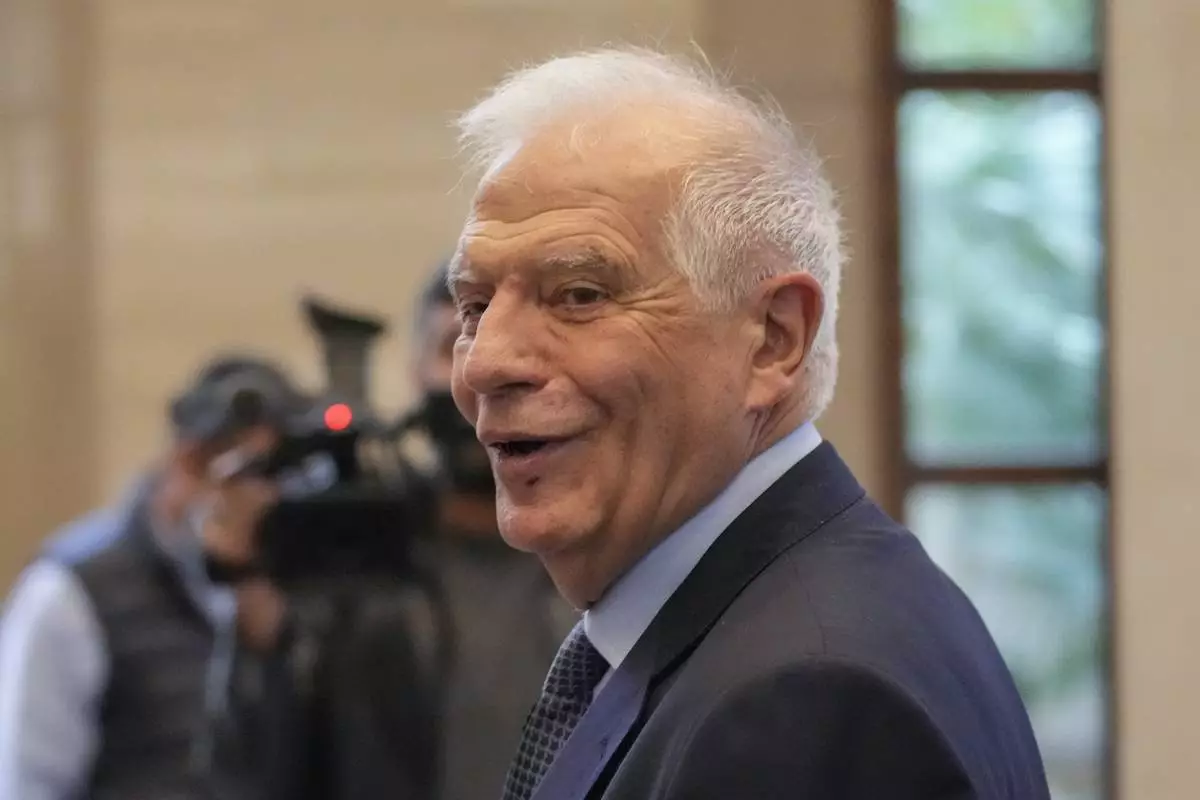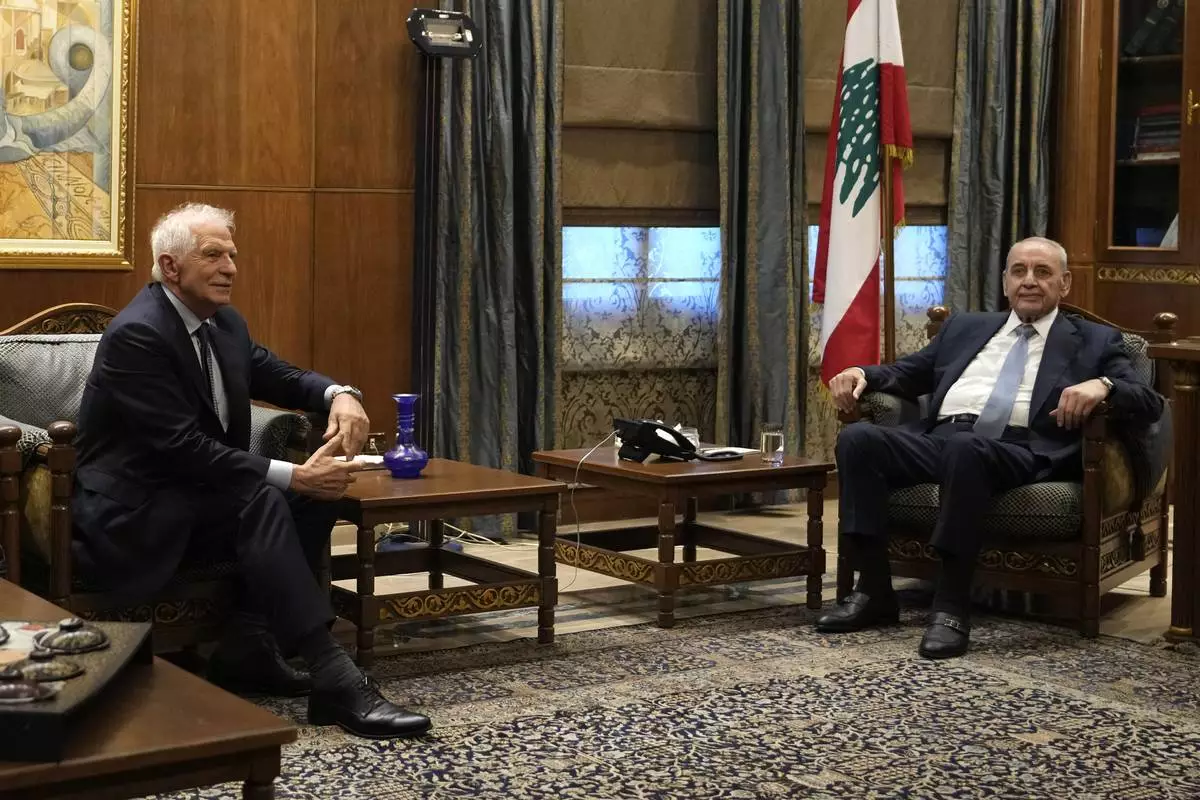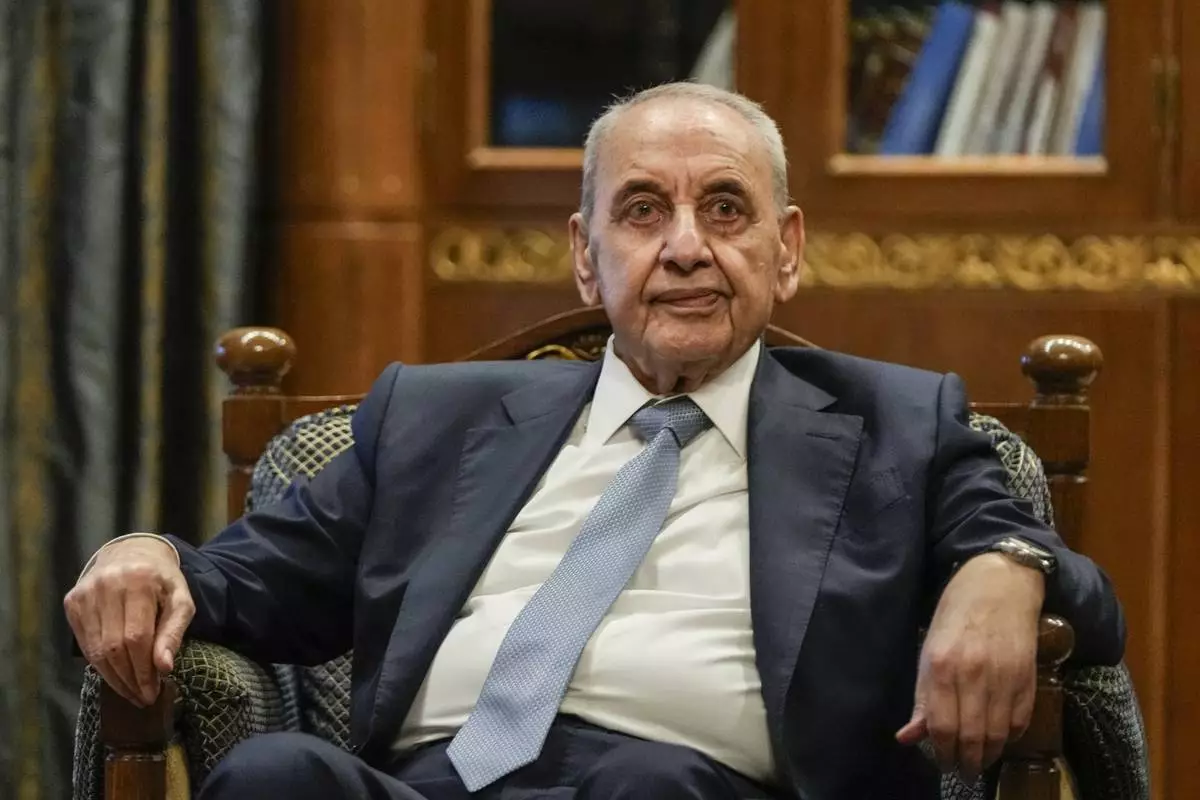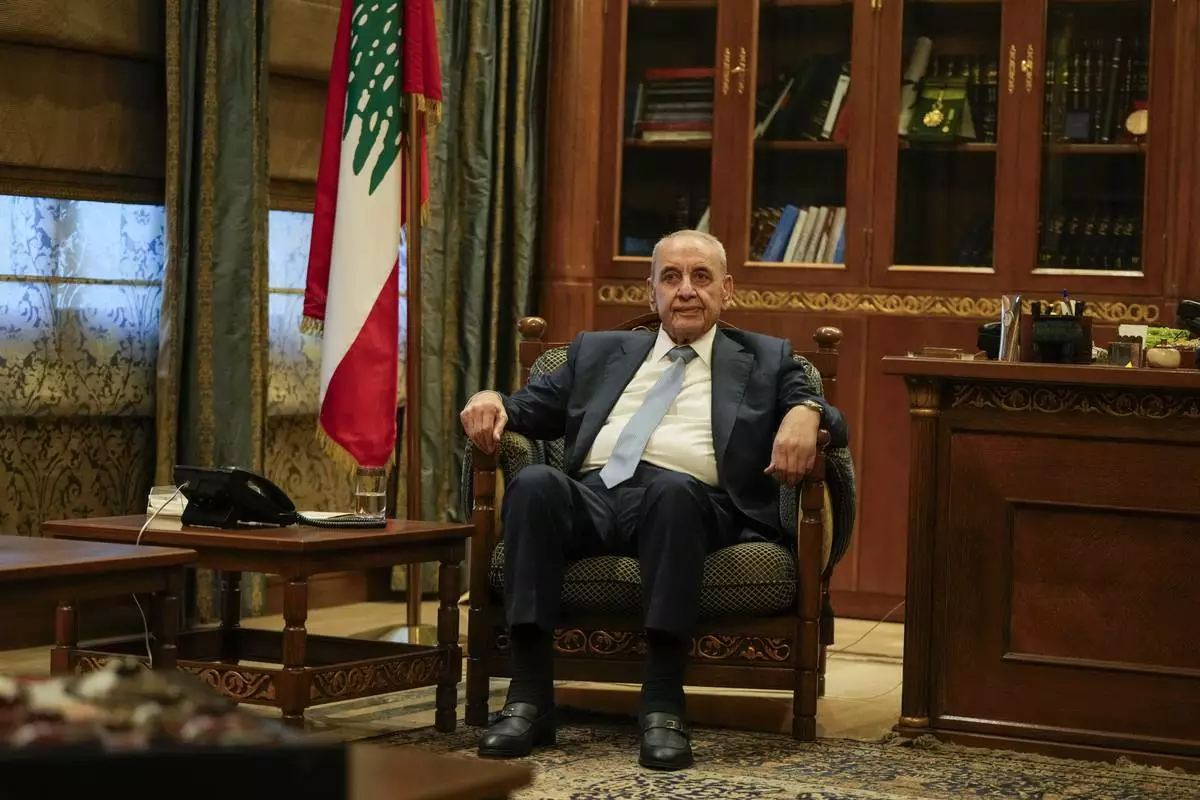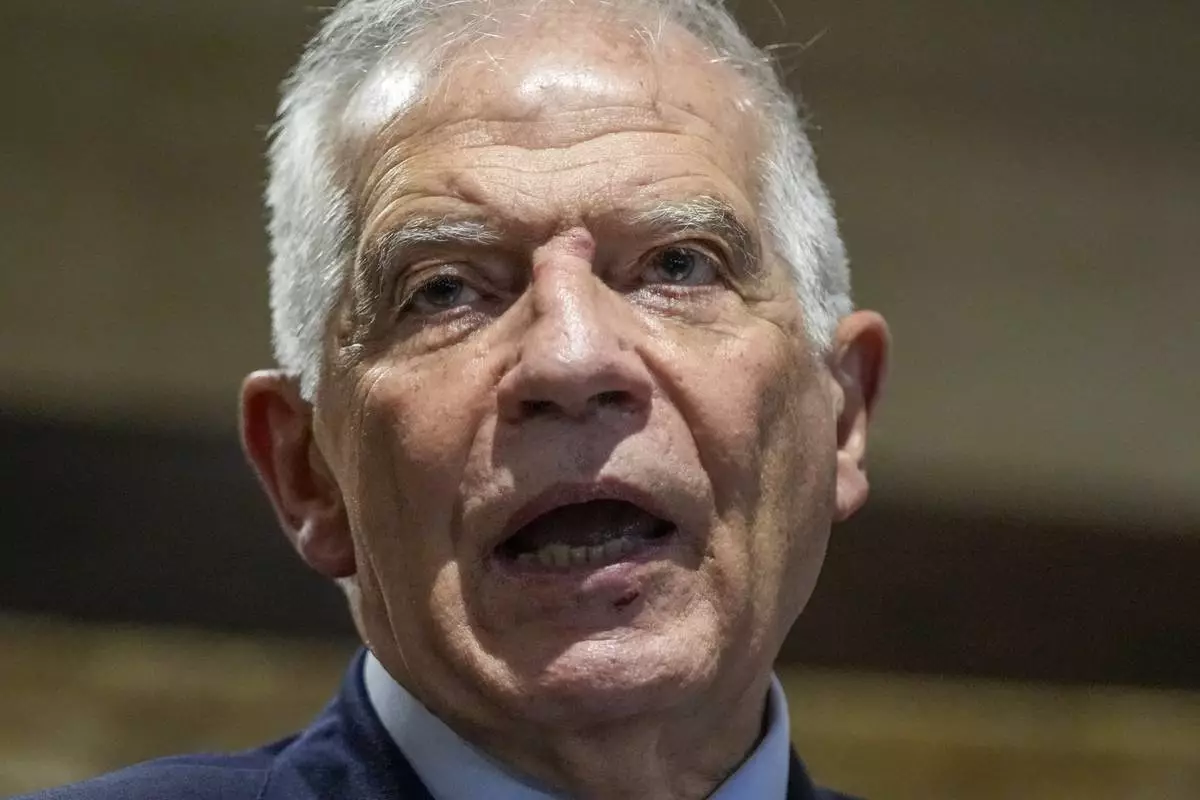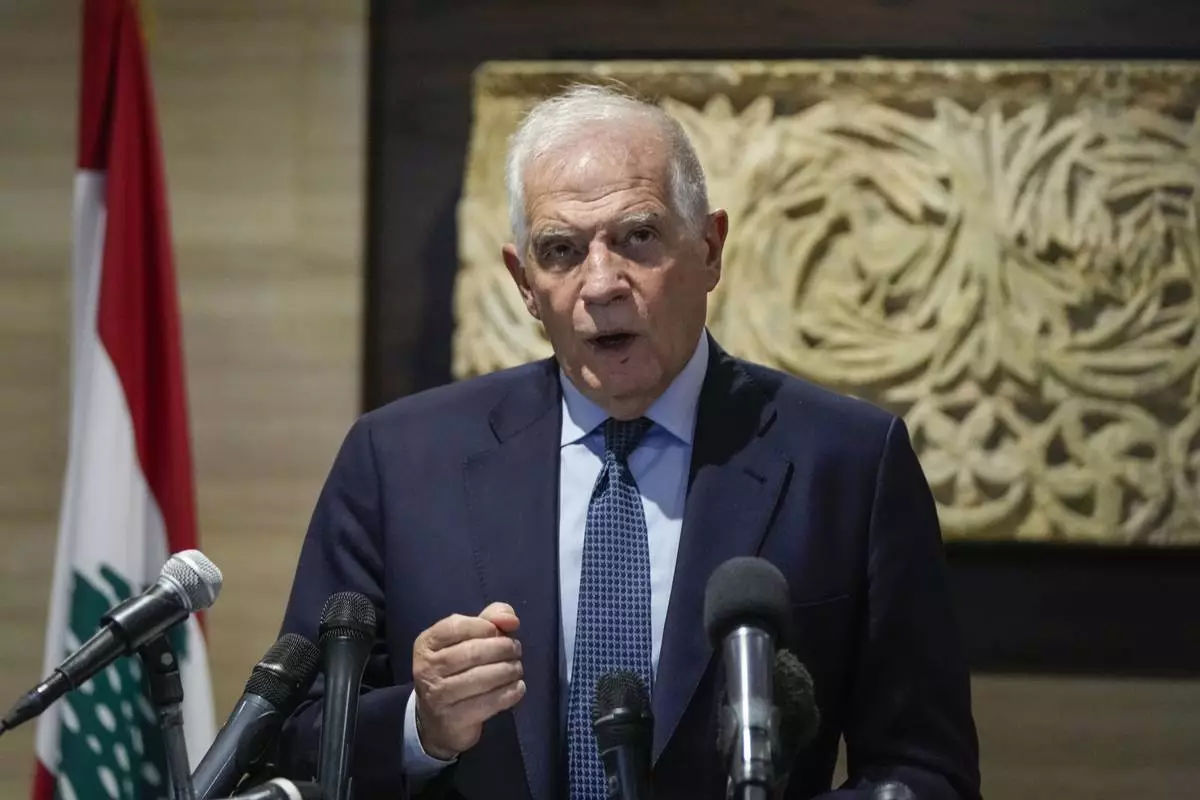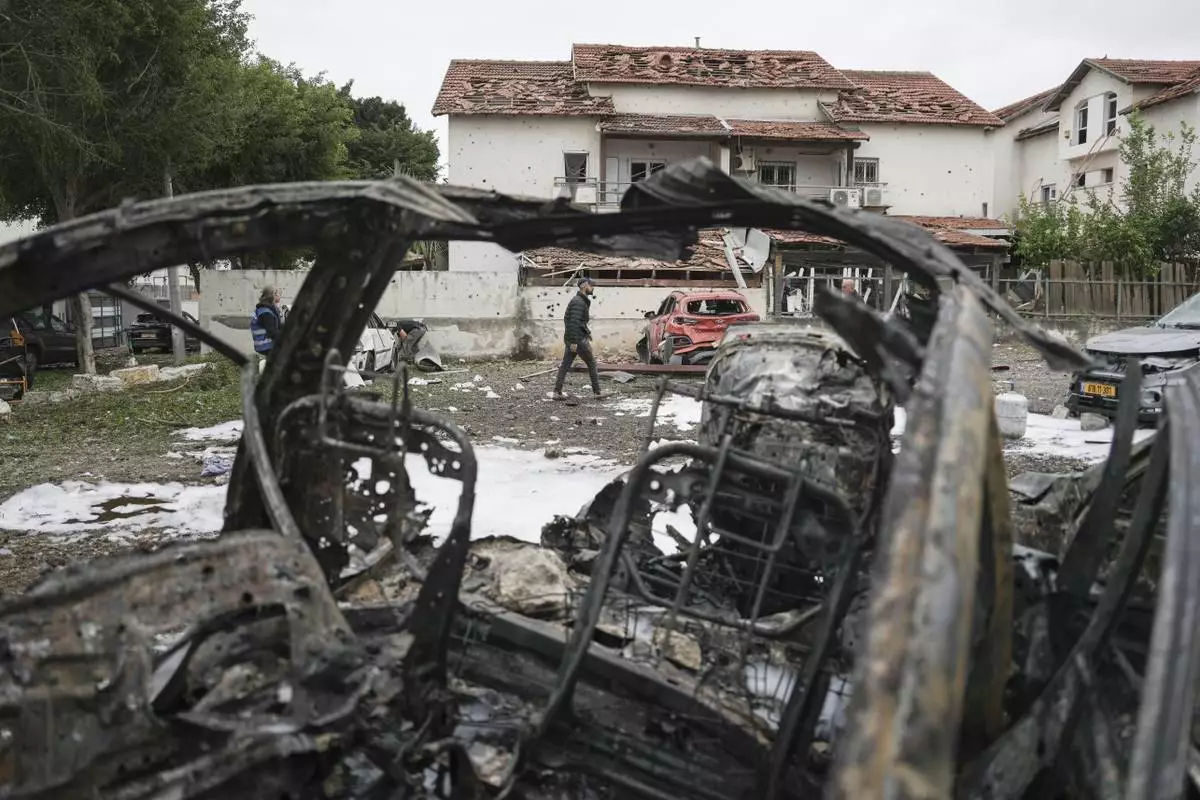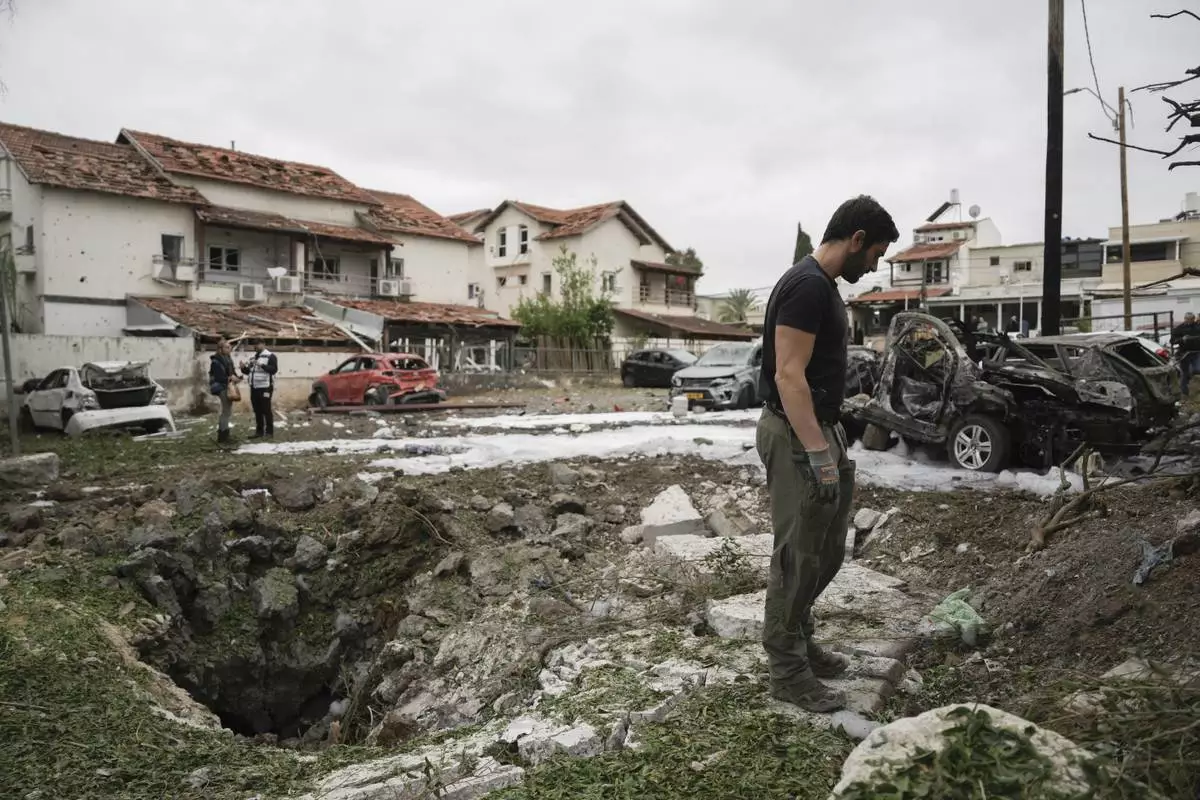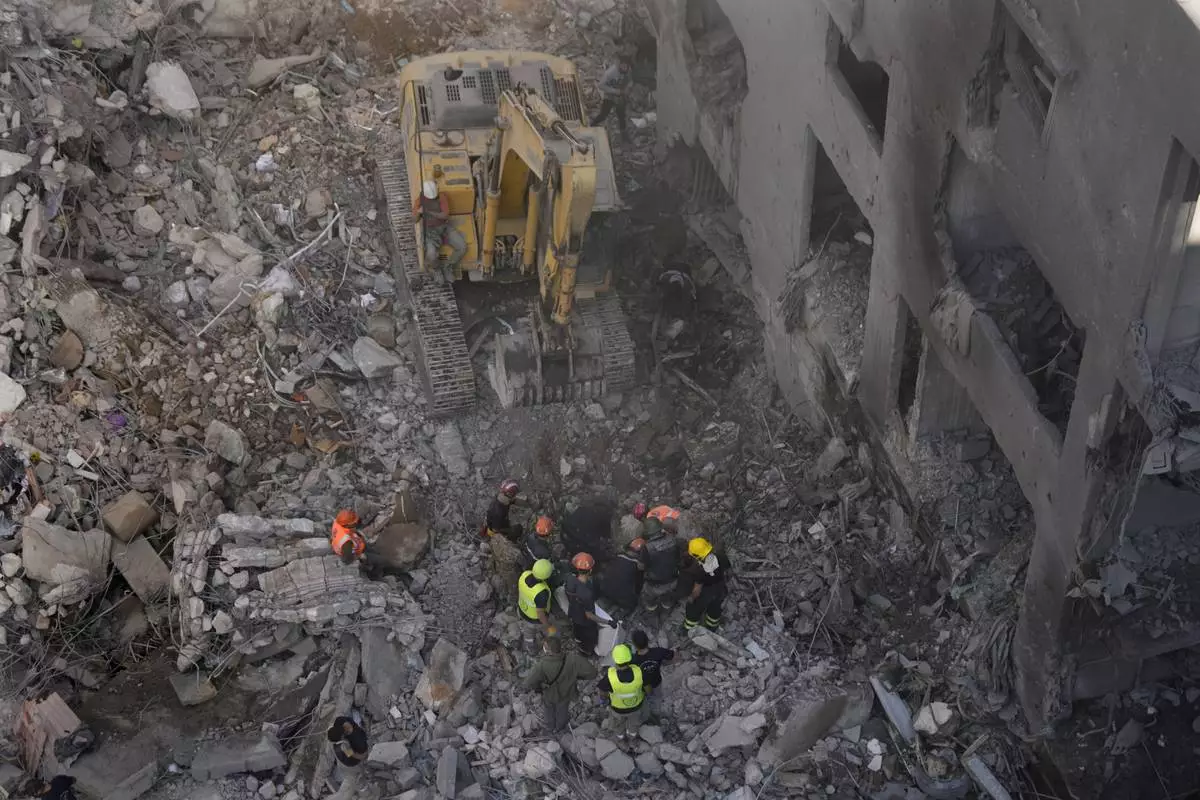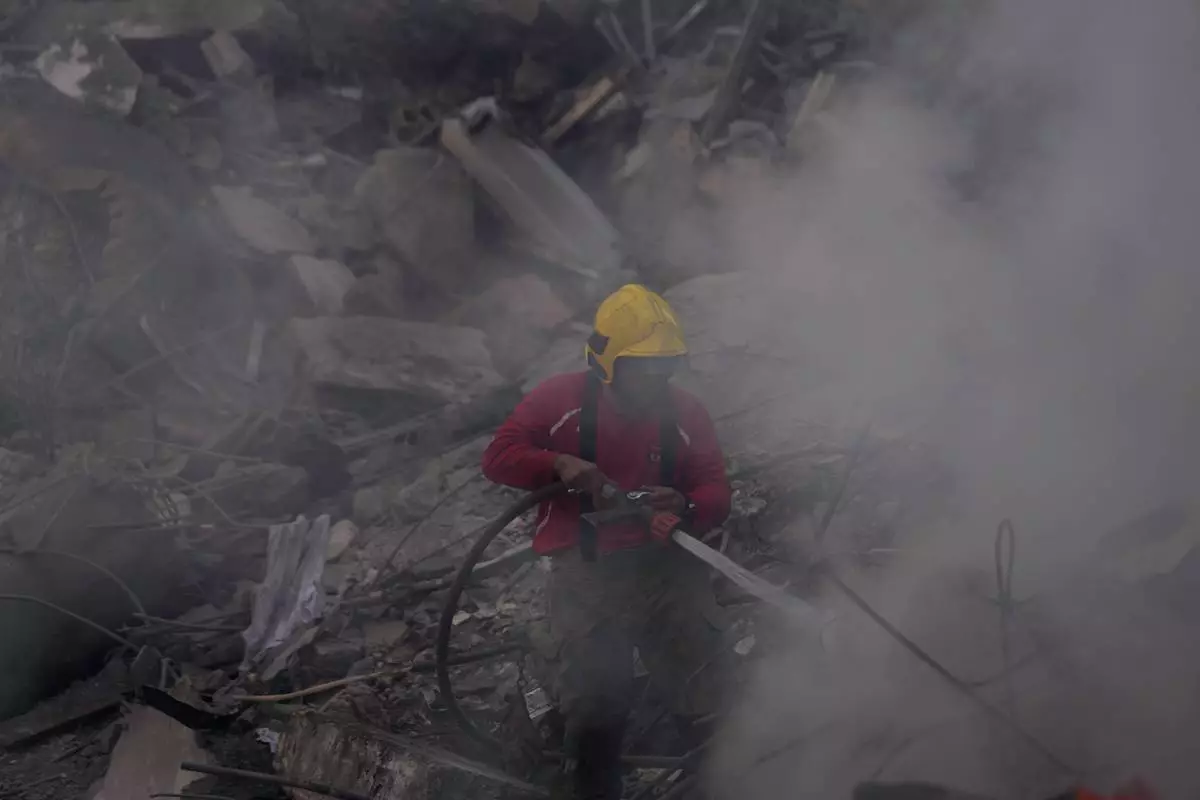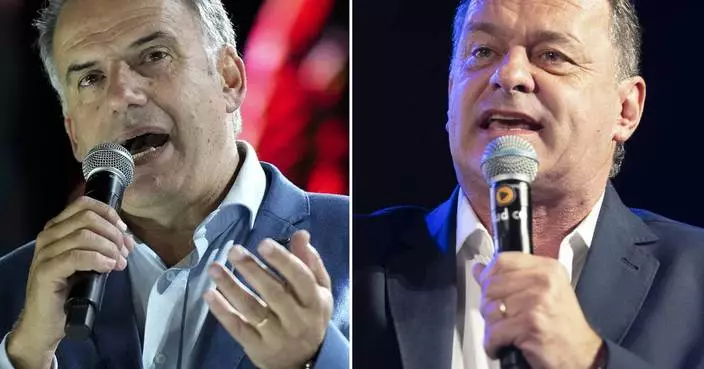WASHINGTON (AP) — Donald Trump has big plans for the economy — and a big debt problem that will be a hurdle to delivering on them.
Trump has bold ideas on tax cuts, tariffs and other programs, but high interest rates and the price of repaying the federal government’s existing debt could limit what he’s able to do.
Not only is the federal debt at roughly $36 trillion, but the spike in inflation after the coronavirus pandemic has pushed up the government's borrowing costs such that debt service next year will easily exceed spending on national security.
The higher cost of servicing the debt gives Trump less room to maneuver with the federal budget as he seeks income tax cuts. It's also a political challenge because higher interest rates have made it costlier for many Americans to buy a home or new automobile. And the issue of high costs helped Trump reclaim the presidency in November's election.
“It's clear the current amount of debt is putting upward pressure on interest rates, including mortgage rates for instance," said Shai Akabas, executive director of the economic policy program at the Bipartisan Policy Center. “The cost of housing and groceries is going to be increasingly felt by households in a way that are going to adversely affect our economic prospects in the future.”
Akabas stressed that the debt service is already starting to crowd out government spending on basic needs such as infrastructure and education. About 1 in 5 dollars spent by the government are now repaying investors for borrowed money, instead of enabling investments in future economic growth.
It's an issue on Trump's radar. In his statement on choosing billionaire investor Scott Bessent to be his treasury secretary, the Republican president-elect said Bessent would “help curb the unsustainable path of Federal Debt.”
The debt service costs along with the higher total debt complicate Trump's efforts to renew his 2017 tax cuts, much of which are set to expire after next year. The higher debt from those tax cuts could push interest rates higher, making debt service even costlier and minimizing any benefits the tax cuts could produce for growth.
“Clearly, it's irresponsible to run back the same tax cuts after the deficit has tripled,” said Brian Riedl, a senior fellow at the Manhattan Institute and a former Republican congressional aide. “Even congressional Republicans behind the scenes are looking for ways to scale down the president’s ambitions.”
Democrats and many economists say Trump's income tax cuts disproportionately benefit the wealthy, which deprives the government of revenues needed for programs for the middle class and poor.
"The president-elect’s tax policy ideas will increase the deficit because they will decrease taxes for those with the highest ability to pay, such as the corporations whose tax rate he’s proposed reducing even further to 15%,” said Jessica Fulton, vice president of policy at the Joint Center for Political and Economic Studies, a Washington-based think tank that deals with issues facing communities of color.
Trump's team insists he can make the math work.
“The American people re-elected President Trump by a resounding margin giving him a mandate to implement the promises he made on the campaign trail, including lowering prices. He will deliver,” said Karoline Leavitt, the Trump transition spokeswoman.
When Trump was last in the White House in 2020, the federal government was spending $345 billion annually to service the national debt. It was possible to run up the national debt with tax cuts and pandemic aid because the average interest rate was low, such that repayment costs were manageable even as debt levels climbed.
Congressional Budget Office projections indicate that debt service costs next year could exceed $1 trillion. That's more than projected spending on defense. The total is also greater than nondefense spending on infrastructure, food aid and other programs under the direction of Congress.
What fueled the increased cost of servicing the debt has been higher interest rates. In April 2020, when the government was borrowing trillions of dollars to address the pandemic, the yield on 10-year Treasury notes fell as low as 0.6%. They're now 4.4%, having increasing since September as investors expect Trump to add several trillions of dollars onto projected deficits with his income tax cuts.
Democratic President Joe Biden can point to strong economic growth and successfully avoiding a recession as the Federal Reserve sought to bring down inflation. Still, deficits ran at unusually high levels during his term. That's due in part to his own initiatives to boost manufacturing and address climate change, and to the legacy of Trump's previous tax cuts.
People in Trump's orbit, as well as Republican lawmakers, are already scouting out ways to reduce government spending in order to minimize the debt and bring down interest rates. They have attacked Biden for the deficits and inflation, setting the stage for whether they can persuade Trump to take action.
Elon Musk and Vivek Ramaswamy, the wealthy businessmen leading Trump's efforts to cut government costs, have proposed that the incoming administration should simply refuse to spend some of the money approved by Congress. It's an idea that Trump has also backed, but one that would likely provoke challenges in court as it would undermine congressional authority.
Russell Vought, the White House budget director during Trump's first term and Trump's choice to lead it again, put out an alternative proposed budget for 2023 with more than $11 trillion in spending cuts over 10 years in order to potentially generate a surplus.
Michael Faulkender, a finance professor who served in Trump's Treasury Department, told a congressional committee in March that all the energy and environmental components of Biden's Inflation Reduction Act from 2022 should be repealed to reduce deficits.
Trump has also talked up tariffs on imports to generate revenues and reduce deficits, while some Republican lawmakers such as House Budget Committee Chairman Jodey Arrington, R-Texas, have discussed adding work requirements to trim Medicaid expenses.
The White House was last pressured by high rates to address debt service costs roughly three decades ago during the start of Democrat Bill Clinton's presidency. Higher yields on the 10-year Treasury notes led Clinton and Congress to reach an agreement on deficit reduction, ultimately producing a budget surplus starting in 1998.
Clinton political adviser James Carville joked at the time about how bond investors pushing up borrowing rates for the U.S. government could humble the commander in chief.
“I used to think that if there was reincarnation, I wanted to come back as the president or the pope or as a .400 baseball hitter," Carville said. "But now I would like to come back as the bond market. You can intimidate everybody.”
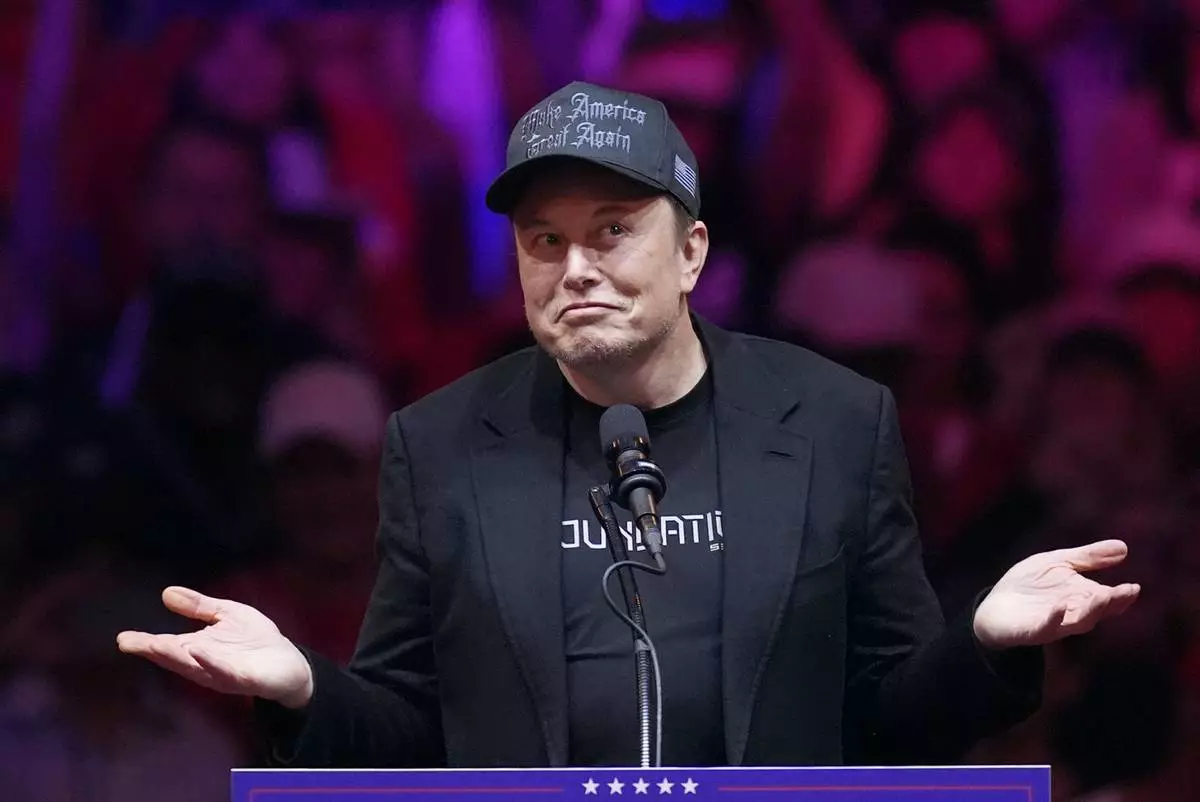
FILE - Elon Musk speaks at a campaign rally, Oct. 27, 2024, in New York. (AP Photo/Evan Vucci, File)
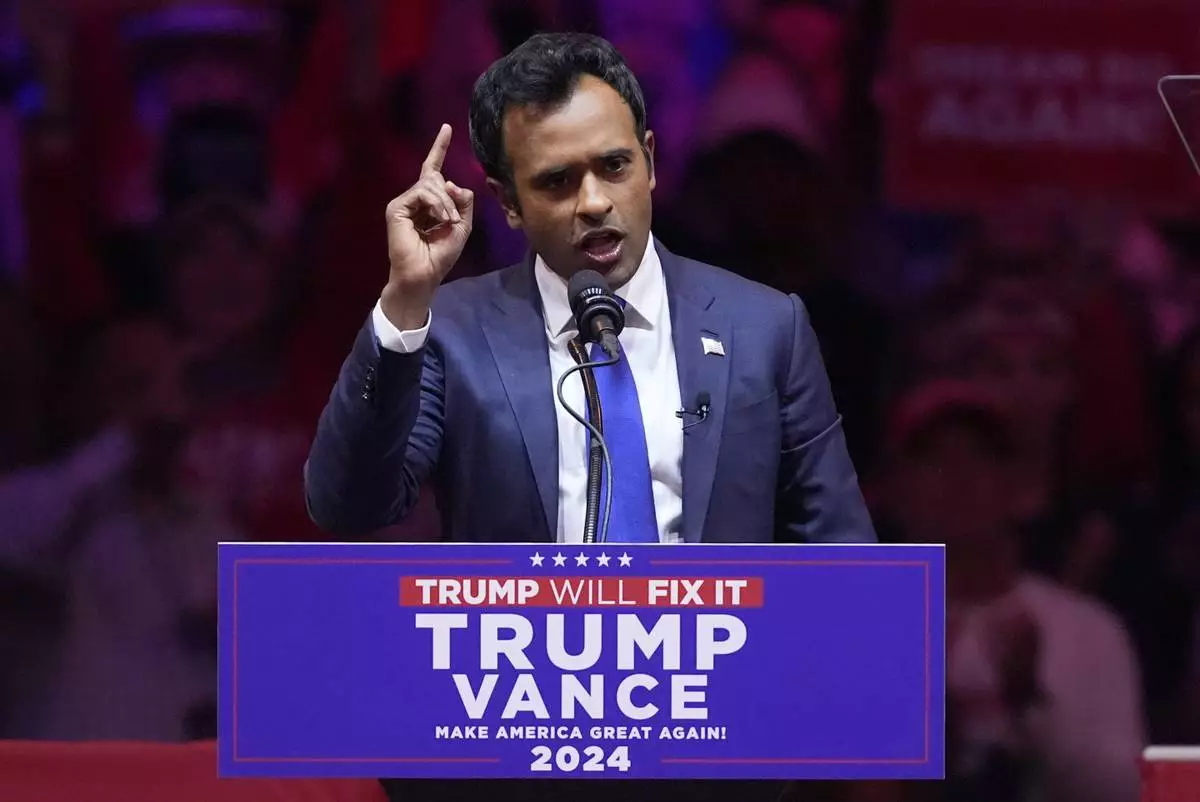
FILE - Vivek Ramaswamy speaks at a campaign rally, Oct. 27, 2024, in New York. (AP Photo/Evan Vucci, File)
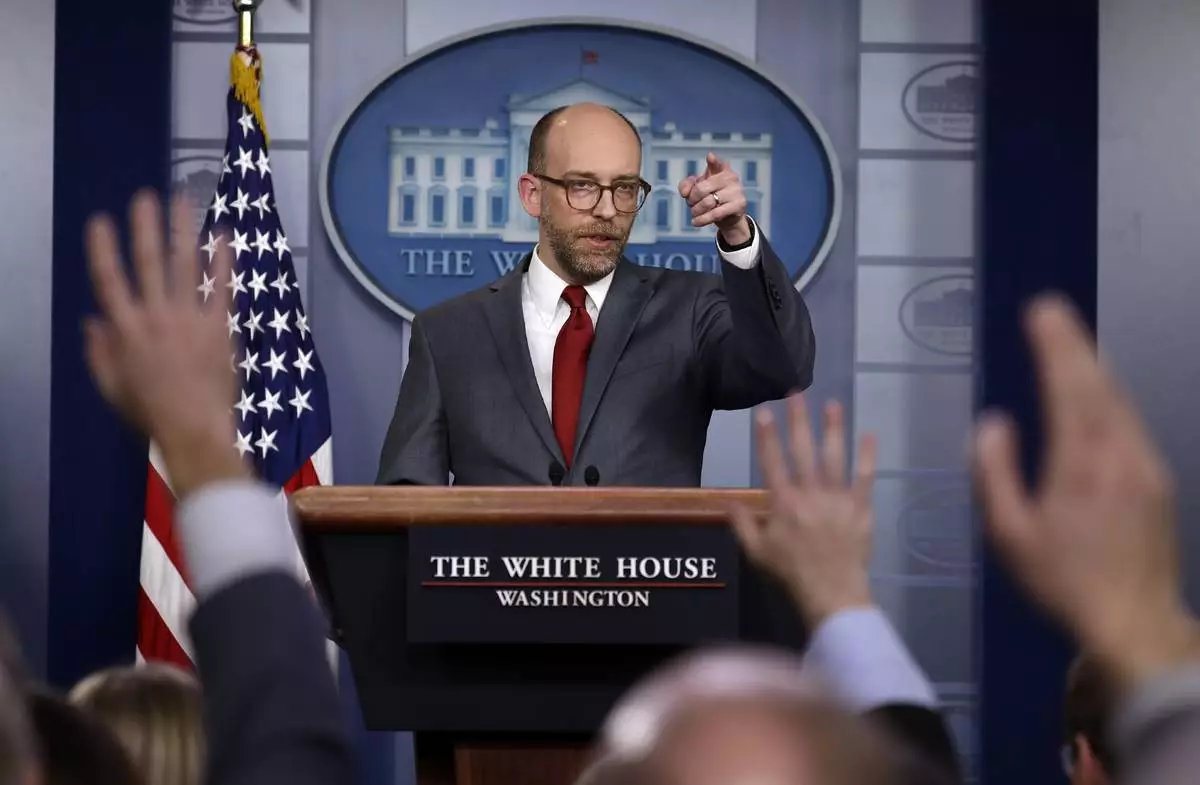
FILE - Acting OMB Director Russel Vought speaks during a press briefing at the White House, March 11, 2019, in Washington. (AP Photo/ Evan Vucci, File)
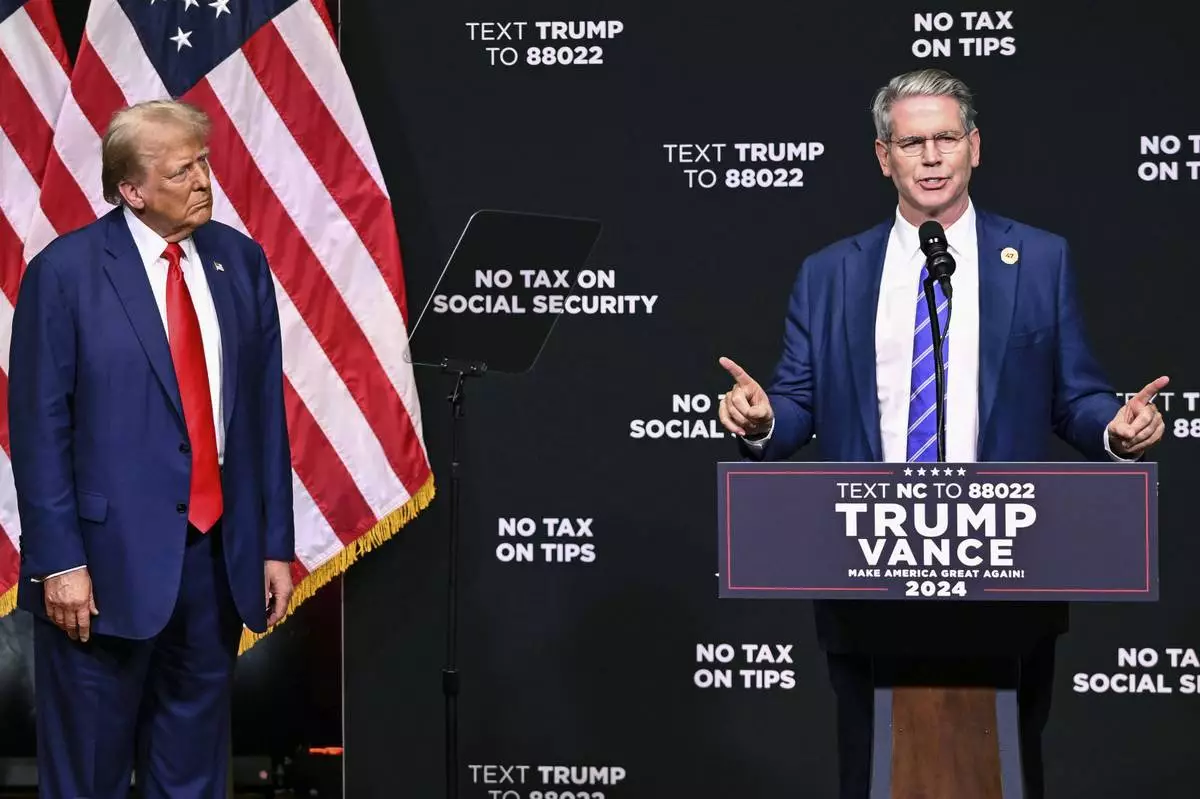
FILE - Republican presidential nominee former President Donald Trump, left, listens as investor Scott Bessent speaks on the economy in Asheville, N.C., Aug. 14, 2024. (AP Photo/Matt Kelley, File)


